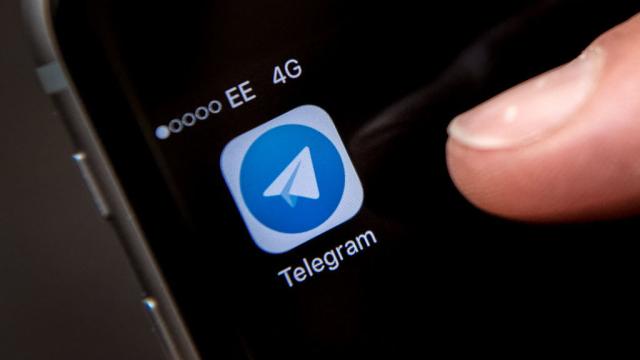Since Russia banned the Telegram messaging app, the government has embarked on a campaign of hitting itself in the face. The functionality of the Russian internet has been hobbled for two weeks as regulators wildly block IP addresses and on Thursday a Kremlin spokesperson admitted he still uses Telegram. “It works for me, and there’s nothing to it,” he said.
Photo: Getty
Two weeks ago, Telegram was officially blocked in Russia for refusing to comply with a law requiring web services to hand over encryption keys to the government. Telegram argued that it can’t provide the keys, even if it wanted to, because they’re generated locally on users’ devices.
Telegram founder Pavel Durov has had a contentious relationship with authorities in his home country for a long time, and he quickly implemented a workaround plan that involved using major cloud services by the likes of Amazon and Google to continue to serve users. So far, it’s worked, but Russian ISPs keep trying to block the new IPs and end up screwing up all kinds of online activity.
Earlier today, Kremlin spokesperson Dmitry Peskov told reporters that the app does appear to still be hanging in there, and he warned them not to take advantage of his continued use of the platform as an opportunity to “dramatise or speak ironically.”
According to the Moscow Times, “Ordinary Russians experienced major disruptions with online payments, games, even so-called ‘smart homes‘ while Telegram lost an estimated three per cent of its Russian audience.” Major services like YouTube, Gmail, the web version of Google Play, Google Drive, and reCAPTCHA have accidentally made their way into the crosshairs of authorities.
Roskomnadzor, the agency in charge of enforcement, has blamed the Google outages on “problems with the traffic filtering systems operated by Russian Internet providers.” According to a site set up by Russian activists to track the blockages, almost 18 million IPs are being affected.
The Russian Education Ministry’s Science Council released a statement on Wednesday saying that researchers are locked out of over a dozen online services that are “extremely important for scientific work.” According to a translation by Russian outlet Meduza, the statement also rejected the government’s attempt to blame ISPs:
The council believes that Roskomnadzor, and not particular Internet providers, is fully responsible for the current situation. […] The disruption of scientific work throughout the country is too high a price to pay for a clumsy attempt to enforce a court ruling against a single company.
Business owners, small and large, have reported significant disruptions to their operations. On day 10 of having its website blocked, a children’s bookstore named Marshak Books opened its own Telegram channel for the first time, just so it could communicate with customers.
As for major players like Amazon and Apple, we’ve asked if they intend to bend to Russia’s demands to remove the app from their services but never received an answer. Google did confirm to Gizmodo that its aware of reports that its services were being blocked, and it said it was “investigating.”
Russian authorities told The Moscow Times on Thursday that “Contact with Amazon has not yet led to positive results, perhaps for political reasons.” They said that Google has been more cooperative and talks are “becoming more constructive, a substantive dialogue has begun.”
